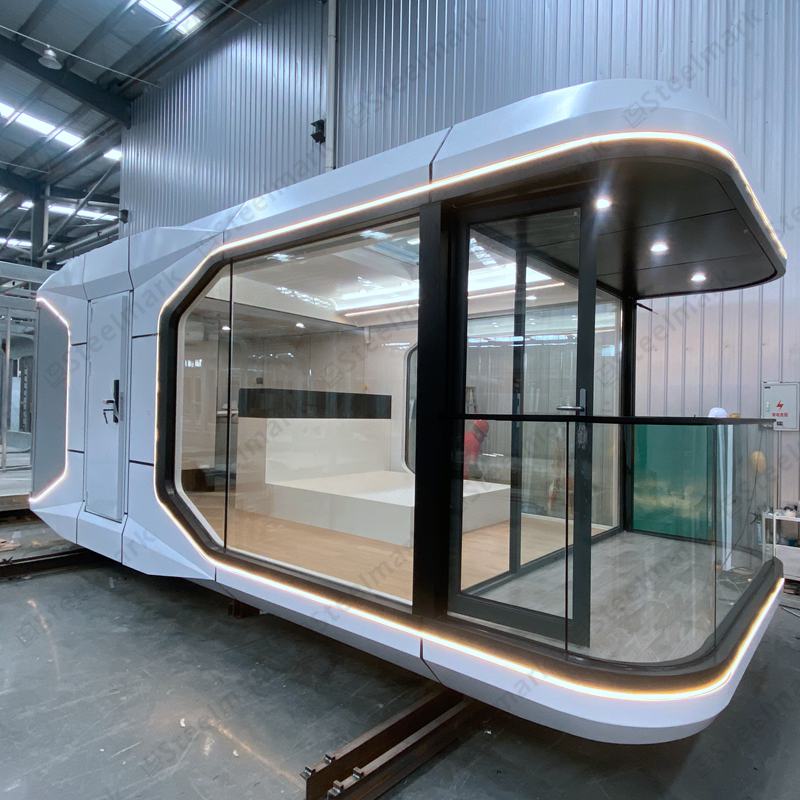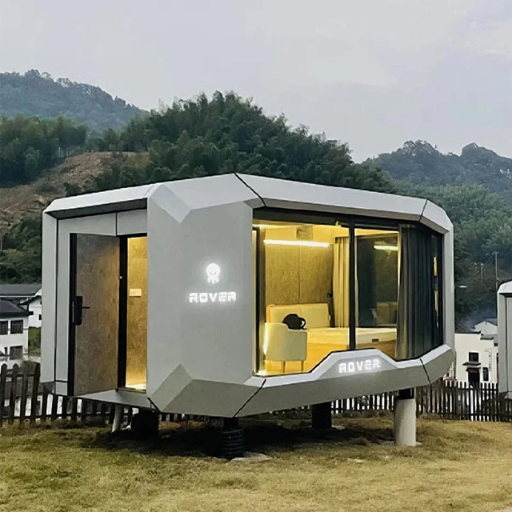Why Modular Homes Are the Future of Lasting Living
Modular homes are progressively identified as a crucial solution for sustainable living, using a mix of performance, cost-effectiveness, and ecological advantages. The flexibility of modular styles permits for the assimilation of lasting innovations and products tailored to private needs.
Ecological Benefits of Modular Homes
The ecological benefits of modular homes represent a considerable action towards sustainable living. These homes are constructed in regulated manufacturing facility settings, which substantially minimizes waste generated during the structure procedure. By enhancing products and reducing excess, modular building adds to an extra efficient use resources contrasted to traditional structure approaches.
In addition, modular homes are typically designed with energy efficiency in mind. Lots of include innovative insulation techniques, energy-efficient home windows, and lasting materials, contributing to reduced energy usage. This can lead to lowered greenhouse gas discharges over the life expectancy of the home, boosting its total ecological account.
The ability to transportation and set up modular components on-site also decreases the carbon impact associated with construction logistics. Additionally, lots of modular homes are developed to be adaptable and conveniently upgradeable, allowing homeowners to implement sustainable technologies, such as solar panels and energy-efficient heating unit, over time.
Inevitably, the ecological advantages of modular homes not just promote sustainable living however also urge a more responsible strategy to real estate development, lining up with international efforts to deal with climate adjustment and maintain natural resources for future generations.
Cost-Effectiveness and Price
Structure a home typically stands for one of the biggest economic investments people make in their lifetime, and modular homes use a compelling option for those seeking cost-effectiveness and cost. Among the key benefits of modular homes is their lower construction expenses contrasted to typical site-built homes. The structured production procedure enables substantial savings on labor and products, which equates to decrease prices for consumers.
Additionally, modular homes normally have shorter construction timelines. This not just decreases costs associated with financing and insurance policy but also alleviates the dangers related to inflation and changing market problems. Several purchasers find that modular homes can be customized to fit their spending plans without sacrificing high quality or layout.
Furthermore, energy performance is often built into the design of modular homes, resulting in reduced energy expenses gradually. Lots of suppliers focus on sustainable materials and practices, additionally improving the long-lasting financial practicality of these homes. In general, the combination of first cost financial savings, fast building and construction, and continuous power effectiveness makes modular homes an eye-catching choice for those seeking to buy lasting living without damaging the bank.
Effectiveness in Building
Modular homes not just use financial advantages yet likewise succeed in building and construction performance. The modular structure procedure includes the simultaneous building of modules in a factory setting while website preparation occurs concurrently. This parallel approach dramatically reduces the total timeline from fertilization to completion, typically reducing construction time by as much as half compared to traditional approaches.
In addition, click here now factory-controlled environments enhance high quality assurance. By using accuracy manufacturing strategies, modular homes are built to precise requirements, lessening waste and mistakes. This uniformity not just results in a greater top quality item yet also contributes to sustainable techniques by lowering material waste throughout building and construction.
In addition, using contemporary technology and automation in the manufacturing procedure permits quicker assembly and lowered labor prices. When the components are transferred to the site, they can be efficiently set up, better quickening the timeline. This structured procedure is not only useful for builders however likewise reduces interruptions to the surrounding setting during building.
Personalization and Layout Flexibility
An impressive range of personalization options distinguishes modular homes, enabling house owners to tailor their home to meet details needs and preferences. This style adaptability is a trademark of modular building and construction, allowing clients to select whatever from layout and room layouts to fixtures and coatings. Unlike conventional homes, modular designs assist in a collaborative strategy where engineers and builders work very closely with homeowners, making certain that each facet lines up with visual needs and private way of livings.
Additionally, modular homes can be quickly reconfigured or expanded, accommodating transforming family members dynamics or developing personal tastes. This adaptability not only improves the home's capability however additionally adds to lasting sustainability, as property owners can change their areas instead of look for new real estate remedies.

Future Trends in Lasting Housing
Emerging trends in sustainable housing are reshaping the landscape of household building and construction, highlighting cutting-edge innovations and environmentally friendly practices. One considerable trend is the assimilation of wise home technology, which boosts energy effectiveness with automated systems that optimize and monitor energy consumption. This not only reduces utility costs however additionally adds to a reduced carbon impact.
In addition, making use of sustainable materials is ending up being progressively usual. Building contractors are choosing for reused, locally sourced, or swiftly sustainable materials, which reduce ecological influence and support local economic climates. In addition, modular homes are gaining appeal for their decreased waste during building and their versatility to numerous terrains and environments.
One more fad is the incorporation of environment-friendly roofs and living walls, which boost air quality and give natural check this insulation. These functions additionally promote biodiversity in urban areas.
Final Thought
In final thought, modular homes emerge as a pivotal remedy for lasting living, supplying significant environmental advantages through reduced waste and power performance. As trends in lasting real estate develop, modular homes are positioned to play an important function in promoting green living techniques for future generations.
Building a home usually stands for one of the largest monetary investments individuals make in their life time, and modular homes use an engaging service for those seeking cost-effectiveness and affordability. One of the key advantages of modular homes is their lower building expenses compared to traditional site-built homes. Generally, the combination of initial expense savings, fast building, and continuous power effectiveness makes modular homes an appealing choice for those looking to invest in lasting living without damaging the financial institution.
Ultimately, the customization and design versatility supplied by modular homes make sure that they are not just frameworks, however personalized shelters that mirror the special identities of their passengers while advertising sustainable living techniques.
